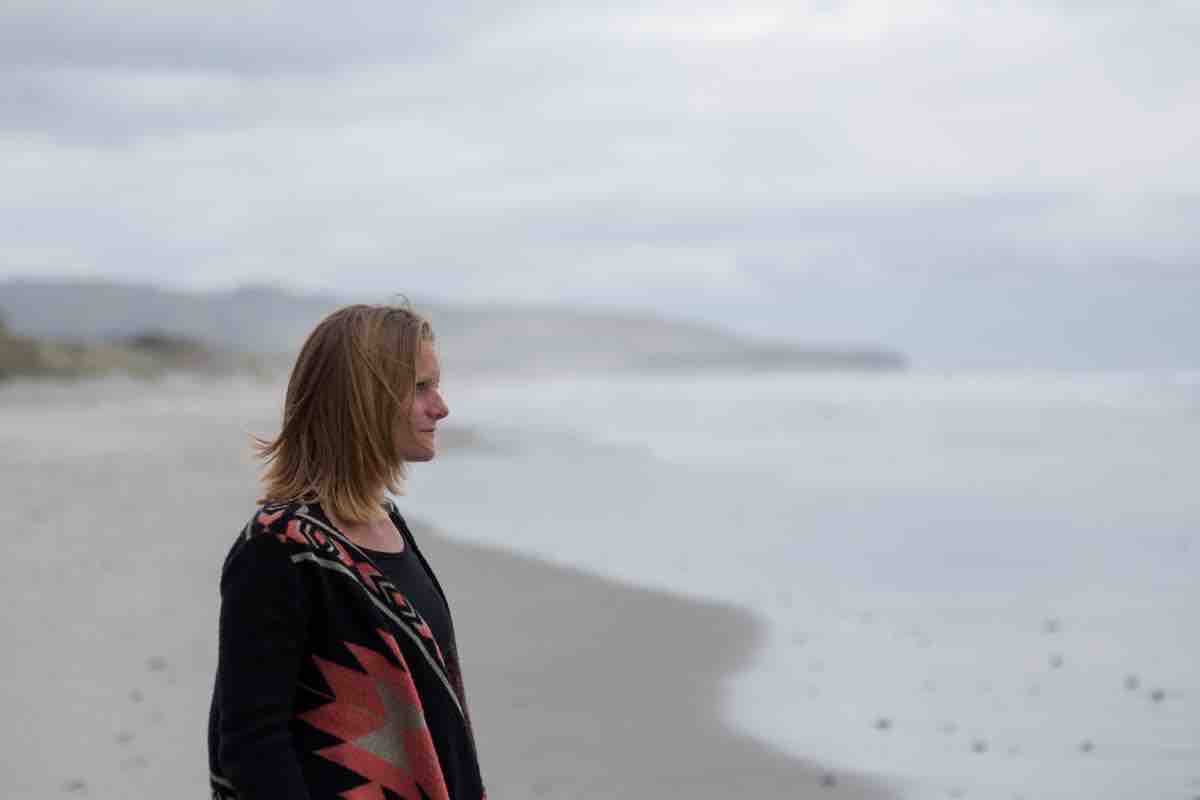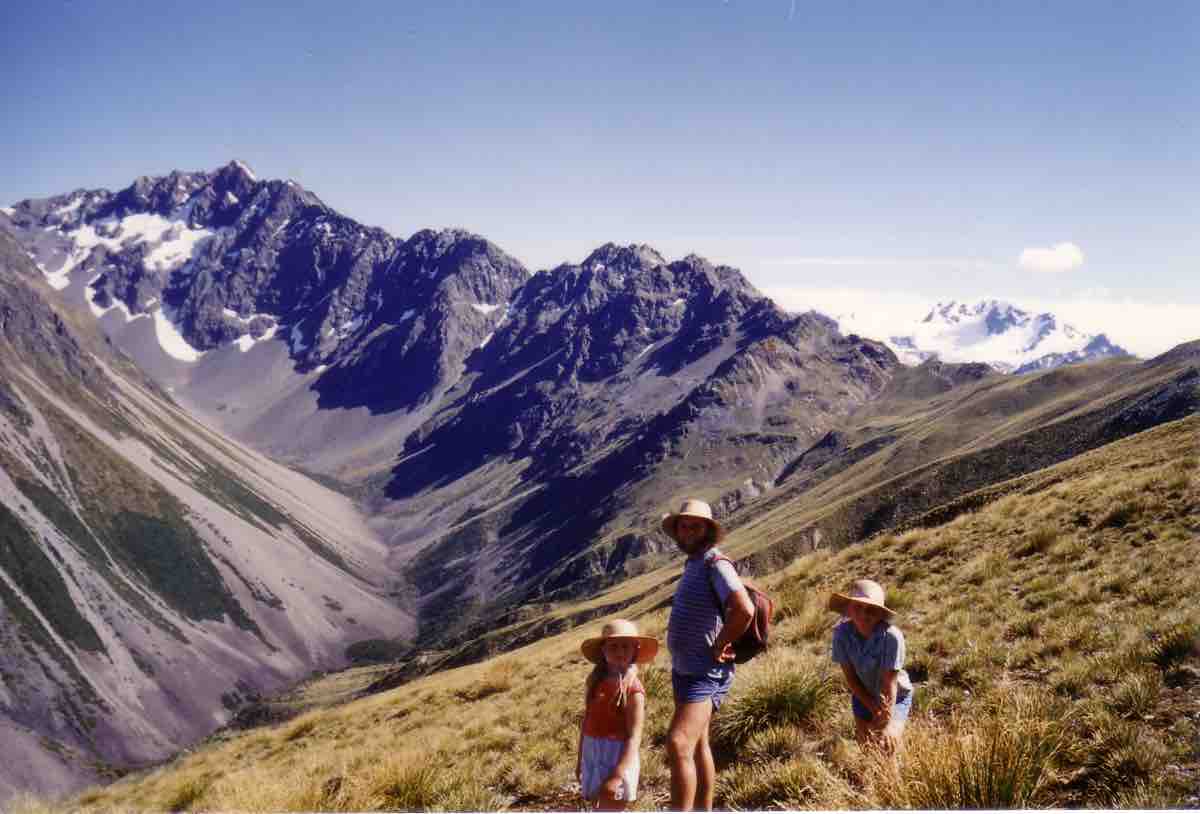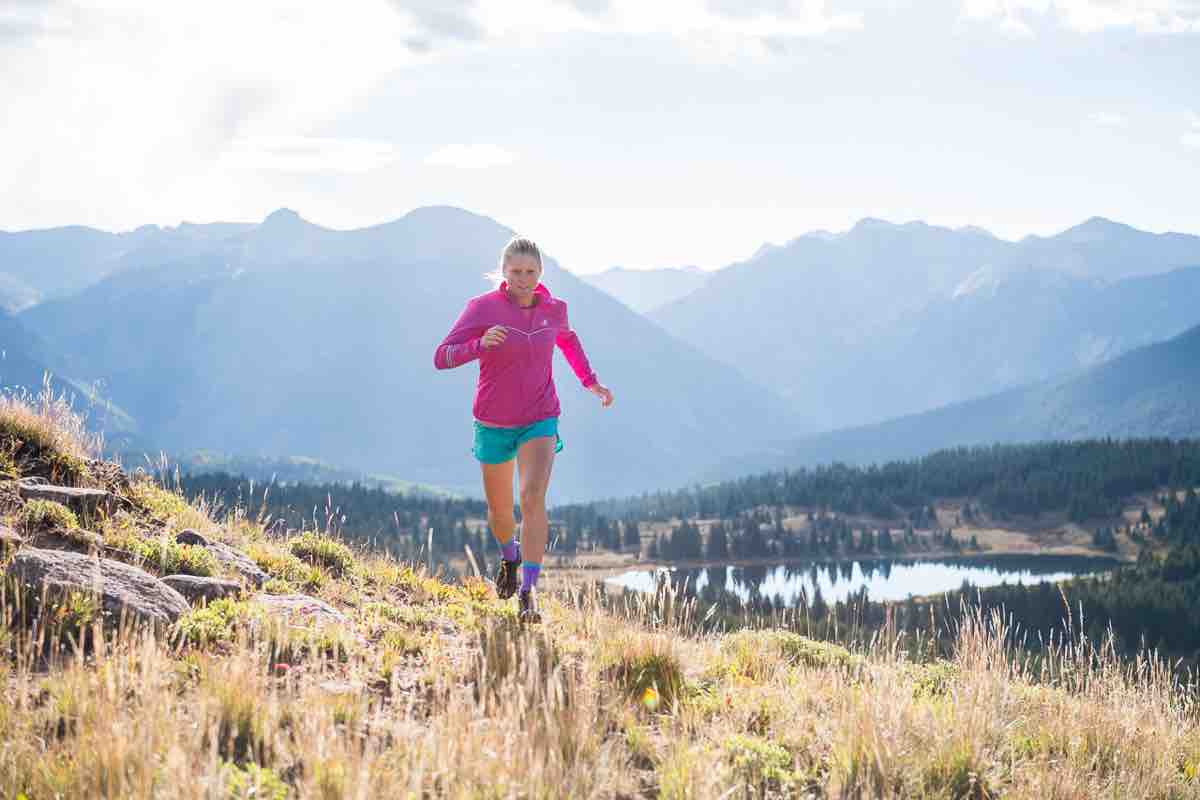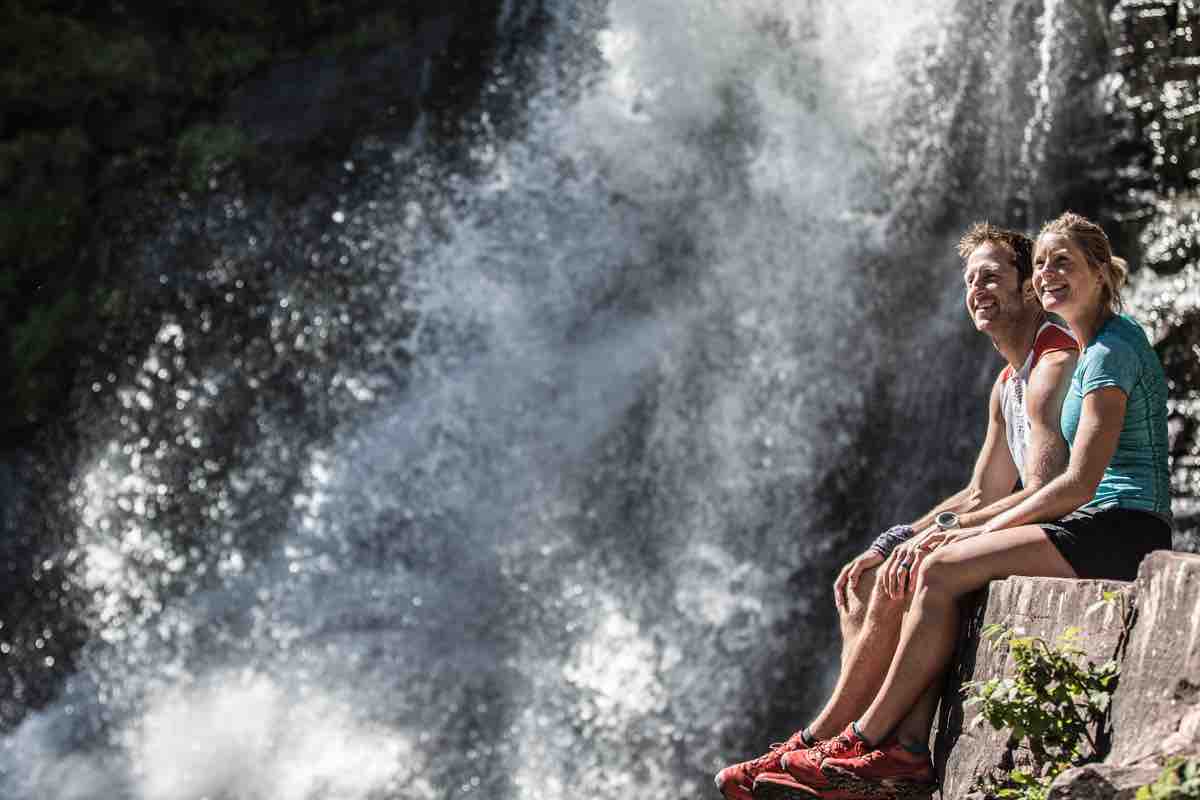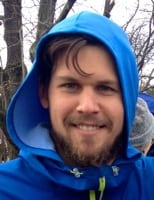Anna Frost, or ‘Frosty,’ hardly needs an introduction. The thirty-five-year-old mountain lover from Dunedin, New Zealand is a two-time champion of both the Transvulcania Ultramarathon and the Hardrock 100, and, in 2015, became one of the first two women to complete Colorado’s brutal Nolan’s 14 line. Setting aside her running accomplishments, it’s Frosty’s contagious smile, infectious laugh, and soaring spirit that have gained her fame and fanfare since she began mountain running in 2004. Propelled to trail running stardom at a time when the sport and social media were just beginning to blossom, hundreds of thousands of fans have been able to closely follow her globetrotting, racing, and life over the past decade. But, behind the scenes, what’s really been going on with Frosty?
Frosty has been interviewed dozens of times before, including an in-depth interview here on iRunFar back in 2013, but in this interview, she sheds new light on her fears, accomplishments, and future dreams. A mature Frosty thoughtfully considers her place within the sport—now and in the future—and if she’ll manage to return to this year’s Hardrock 100 and defend her title. Climb a nearby mountain, listen to this audio preview, and read the interview to learn what Anna Frost is thinking.
iRunFar: You love to travel. You seem to have been doing that for a long time. Does that go back to your childhood?
Anna Frost: Yeah, it does. I think I learnt—it was a learnt behavior from my parents, that traveling was something normal and accessible, and that you would learn a lot and see a lot and become maybe more of an open person because you’ve had to accept the cultures you’re going into, and try to sort of get yourself amongst that environment that you’re in, even though you may stick out like a sore thumb like we did in Papua New Guinea. We were these little, white, blonde-haired girls running around in Papua New Guinea, where they’re all dark skin and don’t even see white skin.
I learnt at a very young age that you would be accepted if you accepted them, too. So, that makes me think that that started early and maybe that’s what started my passion for wanting to learn about more cultures and visit more cultures and travel to different places and see more things because it had been a natural thing I had done when I was younger.
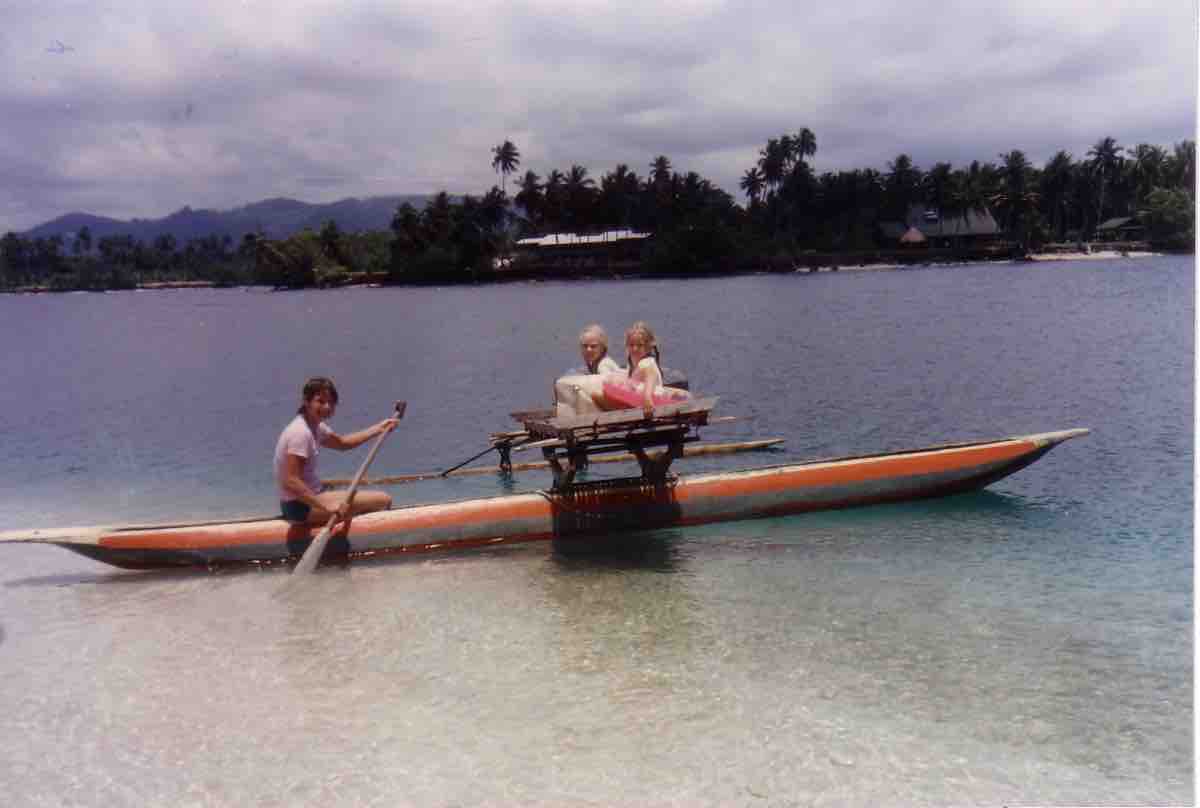
Anna Frost says her nomadic tendencies stem from her upbringing. Here, in 1986, the Frost family is in Papua New Guinea. Photo courtesy of Anna Frost.
iRunFar: The concept of ‘home’ differs for people. Some people see it as a physical place. Is ‘home,’ for you, traveling? Or is there a physical place you would call home?
Frost: I would love to think that home was a structure that you went back into and you had all your favorite things there. But, for me, that’s never been the way it is. Where my mum and dad live back in New Zealand, I think what makes that special is that my mum and dad are there. So, I would call ‘home’ wherever my mum and dad are. But also, for me, it’s more like, the memories. Home is more like a memory. It’s those things that, when you’re a little kid, you remember, that you can go back and think about as home.
When you think of going home for Christmas, you’re actually thinking about the memories you really enjoyed as a young kid—it’s not necessarily the house that you’re going to because you might not even like the area that you’re in, but you think of home because of the memories that you have. So, for me, ‘home’ is definitely a memory. It’s a memory of loving and caring, family, with my mum and dad and sister, spending time with them and doing things with them, in a place—wherever that place was. And it didn’t actually matter where the foundations were, it’s what was in the foundations.
I still feel, when I go home to New Zealand, that it’s home. It’s the country that I call my own. It’s where my mum and dad and sister live, so that for me is home, but more and more now—like with Braz [Ron Braselton], when I’m with him, I feel home. I’m building memories with him, I’m building a life with him, I feel settled with him, I feel like I can go with him places and it’s home. So, you know, you build your own family—even when we’re sleeping in the back of our car, it feels like home.
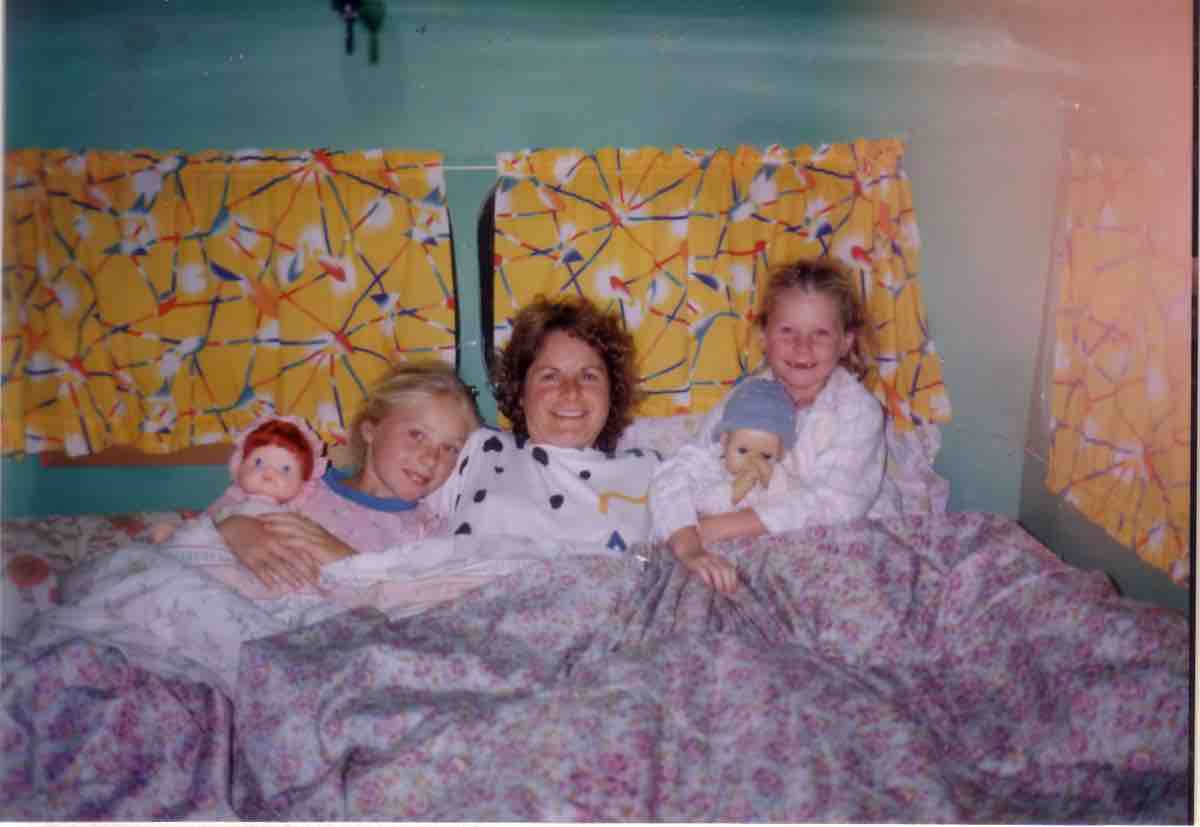
Anna (far right) shows off her lost teeth with her mum and sister in 1988. Photo courtesy of Anna Frost.
iRunFar: Speaking of Braz, I understand you’re getting married next year. That must be an exciting step for you.
Frost: Yes! I won’t say the date and venue [laughs] but next year Braz and I will get married. Yeah, I’m very excited. You know, it’s part of that idea that your memories and thoughts make part of what’s ‘home.’ When you’re happy in your life, you’re happy in your training, your body is healthy, your mind is healthy, you race better, train better, and live better. For sure, it’s been part of settling me and finding my own roots and seeing more of the future.
iRunFar: I’ve heard you refer to your ‘meandering Salomon family’ a number of times. Will there be a time when you have a permanent family of your own?
Frost: Yeah, definitely. I feel like the meandering family is part of my permanent family. The people I’ve met along the way that I bump into every now and then, they’re some of my best friends and the people I would turn to, absolutely. The world is full of little pockets of family all around. But in terms of immediate family, absolutely. I’d love to have a family with my own little kiddies. But we’ll let nature do that and if it works for me, great; if not, there are so many kids out in the world that need love, so definitely if it doesn’t happen for me naturally, we’d be really happy to find a little kid that needs our love. The timeframe, I’m not sure. Maybe it will be in the next year, or next five years, or next 10 years, or whatever it takes, really.
iRunFar: Running is a physical activity but, with what you’ve said about home and your relationship, I wonder if you would describe it in terms of mental states?
Frost: When you’re out in the mountains, you’re definitely going to a mental space. You either going to a training space where you’re mentally pushing hard, or you’re going into a decompressing state after a long day of work or crazy kids or whatever is setting you out in the mountains, out running. You can clear your head and find your space, and see what’s at the top of the mountain or around the next corner. Of course, it’s physical—we want to see what our body can do. But without our mental capacity of wanting to know what our body can do, we wouldn’t go out running in the first place. And, as you know, the longer the race—when you get into 50 miles, 100 miles, and you’re out overnight—it’s 90% mental.
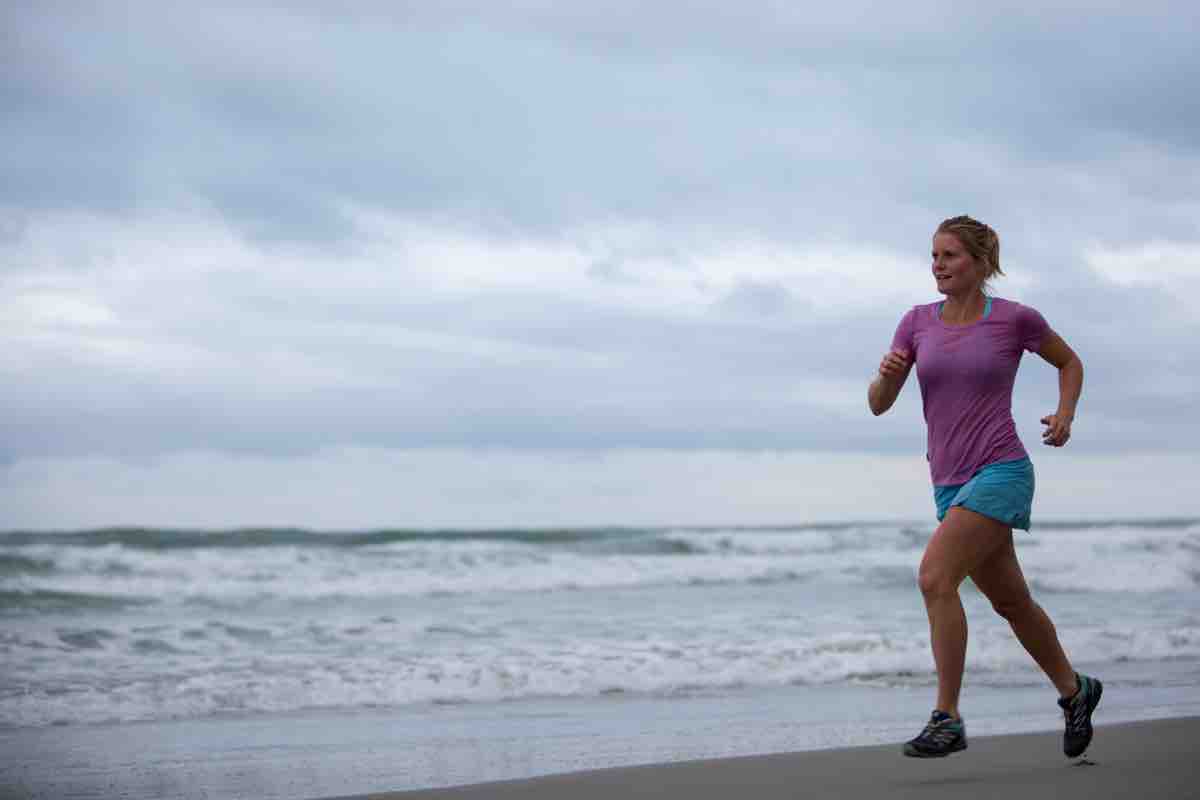
Anna enjoys a run on Dunedin Beach, near her treasured hometown, Dunedin, New Zealand. Photo: Paul Petch
iRunFar: Some years ago, around 2011, I think you had a bit of an existential crisis. You were worried about being known only as Anna Frost the runner. What did you learn from that experience?
Frost: I battled with those questions about who I was, and what I was, and what running meant to me. I came to terms with that by going really deep and dark because all of a sudden I was just running, and so who was I if I wasn’t running? I’d kind of gone through that in 2011 and as I figured that out, and understood that, and taken a step back and took expectations off myself—to be the runner but also to be a good person who runs. Maybe that was what then led me to fall in love. I was a better person, I had a clearer mind of who I was and what I wanted and, on the side of that, what I did, which was running. So, maybe it was a combination of meeting someone I was ready to love and ready to be loved by.
iRunFar: What scared you about identifying as just Anna the runner?
Frost: The sad and scary thing about that was that it was a self-destruction from a change in trail running, really. It goes back to the fact that I wasn’t enjoying it and I wasn’t passionate about it anymore, but I was forcing myself to do it. It was around the time when trail running was booming, and there were more Facebook ‘likes,’ and press conferences, and road trips and traveling, and everything else. It was really quick and I didn’t expect it. You know, you were never taught about what’s going to happen when all of a sudden you become professional in something and everyone wants to take your photo.
So, you start looking at Facebook, and you start getting injured, and people don’t like you as much anymore, and your self-esteem goes down, and you think that people used to like you because you were a runner and now they don’t like you because you’re injured. Then your self-worth and everything that you are disappears. The scary thing for me was that it took me down into depression and major injury. I mean, it’s ridiculous that those expectations that I put on myself—that I was runner and I couldn’t run so I was no one—was a horrible place to be. I went really dark with that. It took me to really hit the bottom before I was like, Wow, okay, this is not right. This is not who I am. This is not why I run. It was a good couple of months and obviously I was surrounded by supportive people. When I could actually see back and look at it, I realized that I run because I love it and not for anyone else, not for Facebook, not for my sponsors, not for anyone except for me. Do I want to keep doing this? Yes, because I love it. I came back into racing with a completely different perspective of it, that it really was just running, and if I didn’t enjoy training, I wasn’t going to do it; if I didn’t enjoy racing, I wasn’t going to do it. That was three or four years ago and since then it’s been a really nice reminder, constantly, to know that I’m not just a runner, I’m me, and I’m me who runs.
iRunFar: I can see why that would be unknown and frightening territory—you didn’t have anyone to speak with about being famous in the sport because you were sort of one of the first.
Frost: Yeah, sure. I never came into trail running because I wanted to be professional. I still don’t want to be a professional runner—that’s not why I do it and that’s not what I think of myself as. We were running in those days just because we wanted to and because it was fun and there was a great circuit. We got a little bit of support but we basically didn’t have any expenses. We were just traveling around with backpacks and sleeping in tents and we could afford to do that and be the bums of the running scene. But it changed really quickly. All of a sudden there were sponsors, there was branding, and everything else with this big boom of it. It went really quickly. You were kind of thrown into this circus of something we weren’t expecting or even wanting from our own running. It was a hard way to cope with it and I’m not sure that any of us coped with it that well.
iRunFar: You end all of your emails with a quote that says, “Nature is our prime source of energy.” I wanted to ask about that.
Frost: It goes back to my childhood. I was always outside. I didn’t watch TV, I didn’t sit inside, my parents were always sending me outside. I climbed trees, I made swings, I made mud patties. We’d go away in dad’s Bedford bus and go camping beside a river and go fishing and walking. I feel a very strong connection to the outdoors. Camping is one of my favorite things to do because you’re in the fresh air, you can hear the water, you can hear the trees, you can hear the birds. It fills me up with the energy that I need and want. I think that just comes from being brought up very close to the environment. Maybe that’s more so in New Zealand because throughout our education, we’re also educated in the outdoors. As young kids, we’d go out on school field trips camping for a week. So, maybe it’s more of a New Zealand connection as well.
iRunFar: I’m always curious about people’s motivation. Aside from being in the outdoors, what keeps you motivated to run far?
Frost: Right now, it was definitely Hardrock, meeting Hardrock. I felt that—it might have even been 2013. It was kind of that point where I had been racing for 10 years, all around the world, at every distance. I had done some 50 milers. I was kind of a bit lost about what was motivating me to continue, and what I wanted from running. Was I just happy enough as it was? What was going to keep me training and motivated to actually keep running? Or was it time to go and have a family or get a real job?
Then I came out to Hardrock in 2013—I didn’t race it that year—and went running on the course with Tony [Krupicka], and I think I was pacing Kilian [Jornet] that year. We went running up Handies and I was like, “This can’t be the course.” You know, you’re going straight up the grass and it’s ridiculous. You’re at the top of this mountain and there’s no markers anywhere, although the course is marked. I was like, “I thought we’ve been running on the course?” And they were like, “Well, this is the course [laughs].” I was like, “Holy shit, this is awesome!” So, then that sparked my love. I was like, “I want to do this race.” It didn’t matter to me how long it was. If it was 50 miles, I still would have done it. Then I had to do The Bear 100 as my qualifier. That kind of forced me into doing ultrarunning at a higher standard because then I had to train for 100 miles and I had only been training for 50 miles. I did The Bear, got into Hardrock, and that kind of kept me going for the next three years.
Usually, when I’m running, I’m somewhere really beautiful. It’s rewarding. You get to the top and you’ve just run up there. It makes you smile, it gives you happiness. All those endorphins are released, the adrenaline is pumping. It makes you laugh, it makes you smile, it’s your happiness. You’re there because you love it. Or you should be there because you love it. For me, that’s what drives me in running—because I love it. It makes me happy and it makes me laugh [laughs].
iRunFar: And has the prospect of running Hardrock for a third time kept you going this year?
Frost: This year, I’m struggling with the motivation. I’m going back to Hardrock but the motivation up until now has been really hard. I haven’t wanted to go out and do long days running. I haven’t really had my mind set on doing Hardrock yet. You know, my heart is in Hardrock, but it’s hard to differentiate between, is my heart there because I love Hardrock, or is my heart there because I want to race Hardrock? So, it’s been kind of a struggle and a battle of motivation. Knowing that there’s such a great field of women here this year, I was actually anxious and stressed and sort of upset that I hadn’t been able to get the motivation for training. And then I was forcing the training and forcing the racing and I was hating it. I sort of reconnected again, and Braz said to me, “You need to sort this out. You don’t run because you have to, you run because you love it.” Being surrounded by people who know Hardrock, and know ultrarunning, as a passion and not as a job, not something you can force, has reconnected to me the idea that I’m doing this because I love it, and I’ve got a little more training. I just have to take a completely different approach and go with shorter, higher-intensity training—whether that works or not, I have no idea—and get to a week out from Hardrock, and if I feel like I can get through 100 miles, then I will. If I don’t, then it’s just running. I can step back and say, “Okay, this isn’t for me this year.”
I feel like I am slowly moving out of the will or passion or drive or heart, of putting myself through that. You put yourself through so much pain and damage from training. I’m not sure if I still have that in me. It’s going to be interesting to see what happens, if I can get into Hardrock shape or not. With Hardrock, it’s difficult as well because it’s not a race you line up at to go out and win it. It’s something you line up at, shit-scared at the start line, panicked because you’re about to run 100 miles around these enormous mountains. You’re not thinking about the competition. You’re thinking about how you’re going to manage yourself, and, in the end, it’s about who manages themselves the best. But it takes a lot of respect of the race, and I definitely don’t want to be standing on the start line, not 100% respecting what the race is. If I feel like if I can’t do that, then I won’t start.
iRunFar: That’s an extremely mature approach. I sense that Anna Frost, five years ago, wouldn’t have had that answer.
Frost: No, I wouldn’t have. Five years ago, or maybe even two years ago, or one year ago, or one month ago—I don’t know if I would have had that answer. It’s been taking a lot of searching and discovery and going through the motions of loving it, hating it, not wanting to do it, wanting to do it, and finally just saying, “Okay, you just have to go with this and see what happens.” Maybe that’s because I’m getting to a point where I’m ready to look for something else or do something else.
iRunFar: What have you gotten out of Hardrock over the past couple years?
Frost: I came here and I fell in love with these mountains and fell in love with this race and suddenly I had a dream again, a dream to continue running. That, in itself, even if I hadn’t raced, made me dream and moved me. That’s a very special thing to receive, from whatever it is—a race, or anything you do. That was special in the first place. I was lucky to get in. I had two really great races, one in each direction. I’ve gotten a lot from Hardrock. I’ve moved into the area of Hardrock, I’ve fallen in love with Braz and been able to create this place of home. I’ve met all the Hardrock family and some of them are my best friends as well now. I’ve gotten so much from it. To go and to race it, without giving it the utmost respect and love that it’s given me, doesn’t feel right. As well as that it’s really hard to just train so hard for it. You’re battling with the altitude, you have to do a bunch of vertical, and it’s just day after day. Sure, I’m a professional. It’s what I do. But at some point, we all move on from what we’re doing and need other things to really satisfy us or motivate us or move us.
iRunFar: It seems like maybe now you feel less pressure to be who people expect you to be. Is that true?
Frost: I think your priorities change. What’s the word I’m looking for? I guess, yeah, your priorities change. You start thinking about family, or the future, or finding a house to live in, and what you want to do next. Traveling as a family and not just for a race. Once you find someone who you feel very settled with, it’s easier to start looking in a different direction.
iRunFar: Do you realize that you’re undefeated at the 100-mile distance? That must feel good.
Frost: I am aware of that, yes. I mean, I don’t really think about it like that. Even if I’d come 100th in all of those races, but I finished them all, I think I’d still feel undefeated. I think just finishing them, for me, I would feel like I was winning. Winning is great but it’s not what keeps me going back to it and it’s not what I learnt from it and it’s not what I got out of the races.
You know, I was in tears coming down the finishing chute the first year I won Hardrock—not because I was winning, but because I got the thing finished. I didn’t care where I was, what position, I was just like, Oh my gosh, there’s the rock—I’m finally done! I really feel like anyone that finishes a 100 miler, or even a 50 miler, or even for people just getting into running, a 5k, I feel like that’s winning—that’s being undefeated.
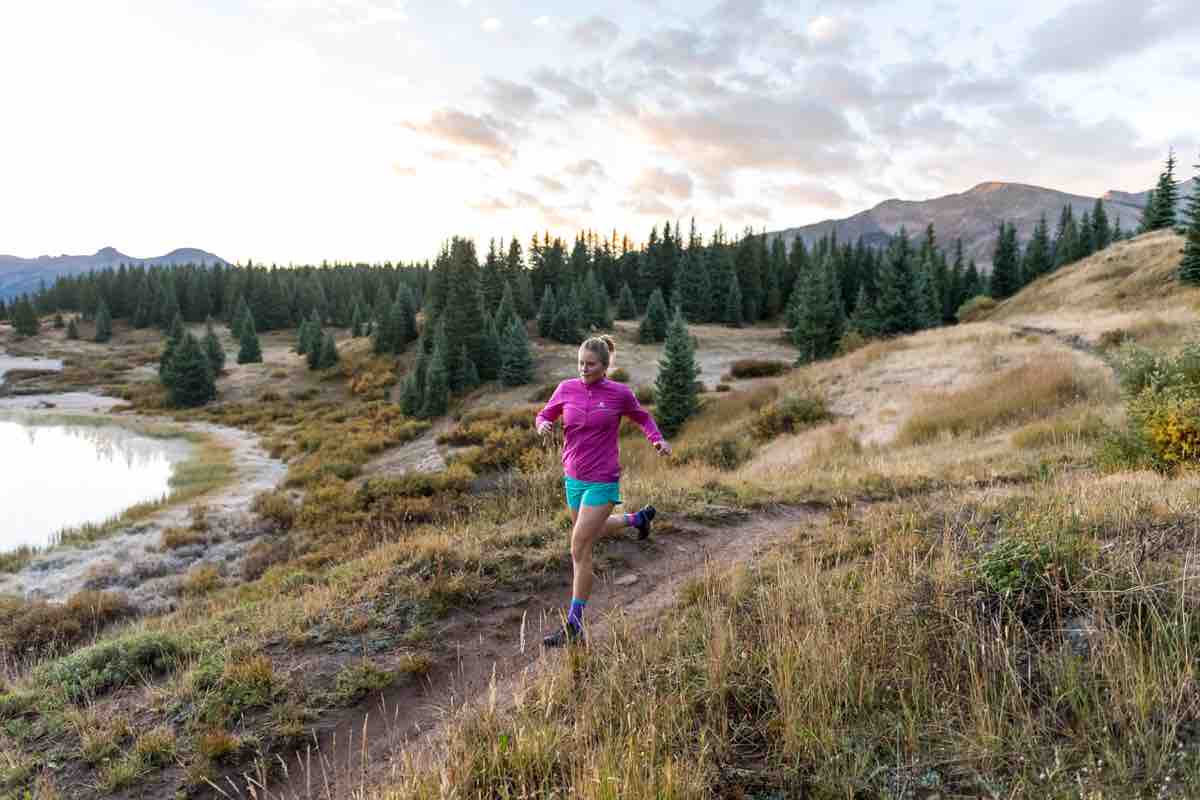
Exploring trails outside of her adopted hometown, Durango, Colorado. Photo: Matt Trappe/Feetures Running
iRunFar: What have you learned from the sport, if not from winning?
Frost: Definitely, winning is fabulous. It’s a feeling that you can’t explain. But finishing is also a wonderful feeling. For me, just watching people, the look in their eyes when they get to the finish line, they’ve tried so hard for—all the time away from their families, or the sacrifices they’ve made from work, or getting up at four in the morning every day for training. To see that, for me, people crossing the finish line an hour after me, two hours after me, a day after me, that’s super inspiring to me, to see that so many people are passionate and dedicated to running because they want to. That gives me a lot of inspiration.
But, personally, the sport has given me an opportunity to travel, to dream, to meet people that I absolutely wouldn’t have met otherwise. And to find new families, little families all around the world, and a lot of highs and lows. I learnt a lot of lessons. It’s been a really good life story. The deep, dark you go into and what you learn while you’re there, and how to rise out of that. That’s something you take into 50 miles, 100 miles, or even that first 5k you’ve ever done.
iRunFar: I imagine you find those lessons valuable outside of running.
Frost: Yeah, absolutely. I think it gives you a more calm and clear vision of what the outside world is like. You don’t take it for granted as much. You know that it is really just simple: you keep on going, you try to stay happy, you be nice to people. That’s kind of the same as a 100-mile race. You get it done. It’s not going to be perfect. You can try to just stay happy and appreciative for what you’re doing. In the end, you’re living your life and you have to make it the best you can.
iRunFar: When you look back at the influence you’ve had on the sport, and the role you’ve had in the sport, particularly as a woman, what do you hope you will have impressed upon people?
Frost: I hope that people continue to run because they love it—not for any other reasons, not for becoming a professional, not because they think that being a professional runner is cool. For me, trail running has a really pure essence and a deep value. For sure, that’s definitely been lost. There are a lot of races already that have become big businesses. I would hope to see the small, local races continue, support of the young runners coming through to continue. The push of women dominating and getting the sport to a higher level of competitiveness and also support. I’d like to see all of those values continue. For me, it’s more that people run on beautiful trails, that trails are maintained well and respected and taken care of, and that that essence continues.
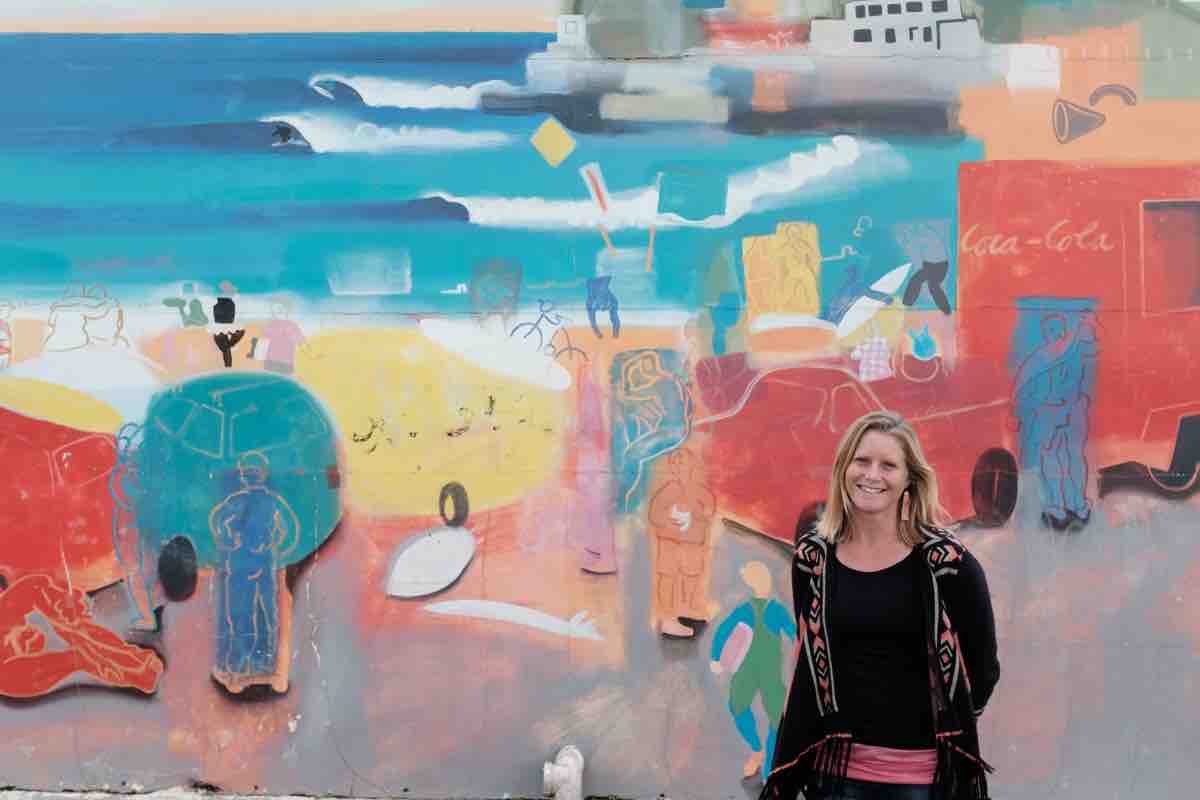
A colorful Anna Frost doing some of the things she does best: smiling and laughing. Photo: Paul Petch
iRunFar: If people had a look into your mind and could hear your unadulterated thoughts, what would they find?
Frost: I try to be as genuine as I can in social media but obviously it’s not as raw as my exact thoughts because I’d probably put a few more swear words in there than I do [laughs]. But I like to think that I try to stay as positive as I can. Obviously, it’s hard to always remain positive. I’m pretty naïve to the general world out there because I don’t want to know all the shit that’s going on in the world. Every time I go on the news, I’m kind of depressed and down-and-out about it. I tend to not look at any TV or news or know anything like that. People may call me a bit naïve, which I’m totally okay about. I always try to see things positively. I obviously go through times when I’m not positive, but at the same time I really try to work that out quickly and remain positive. Generally I try to be happy and stay on top of the world. I realize that sharing energy and happiness and love is contagious and you can spread it around the world when you do that. I try to be as genuine and positive as I can [on social media], just minus the swear words [laughs].
iRunFar: What’s next then? What will Anna Frost be doing in the coming years?
Frost: Definitely I have a focus on building a family. That’s going to be something that will start to be more important to me.
Also, focusing more on Sisu Girls and trying to make that project happen more because I feel that that’s really important. It’s about empowering young women to get in the outdoors and explore their potential and challenge themselves and reach new levels, and for us all to be role models for these young, not just girls but also boys, in our lives, who are scared to give new things a try. Sometimes we don’t go out and try something and fall over and have another go at it—we just don’t have a go at it at all. That’s a really important thing for us at Sisu Girls is that we encourage, especially young girls, to go out there and have a go and be awesome at male-dominated things, or at things they thought they couldn’t do previously. Maybe that will mean doing another book for the book series, maybe doing a global race series or some after-school or summer-camp programs. I definitely want to put a lot more effort into that.
And then maybe continuing to travel but to places I haven’t been to before or places that really intrigue me to go back and explore different areas. Maybe doing a different sport or learning to surf, or things that I haven’t done because I’ve been busy running, but things I’m excited to have a go at. I’ll continue to do my jewelry, I might go back into teaching or sports science. There’s so much to do in this big world. Who knows what will be next?
iRunFar: We won’t find you just sitting around.
Frost: No. I’m not going to be bored!
